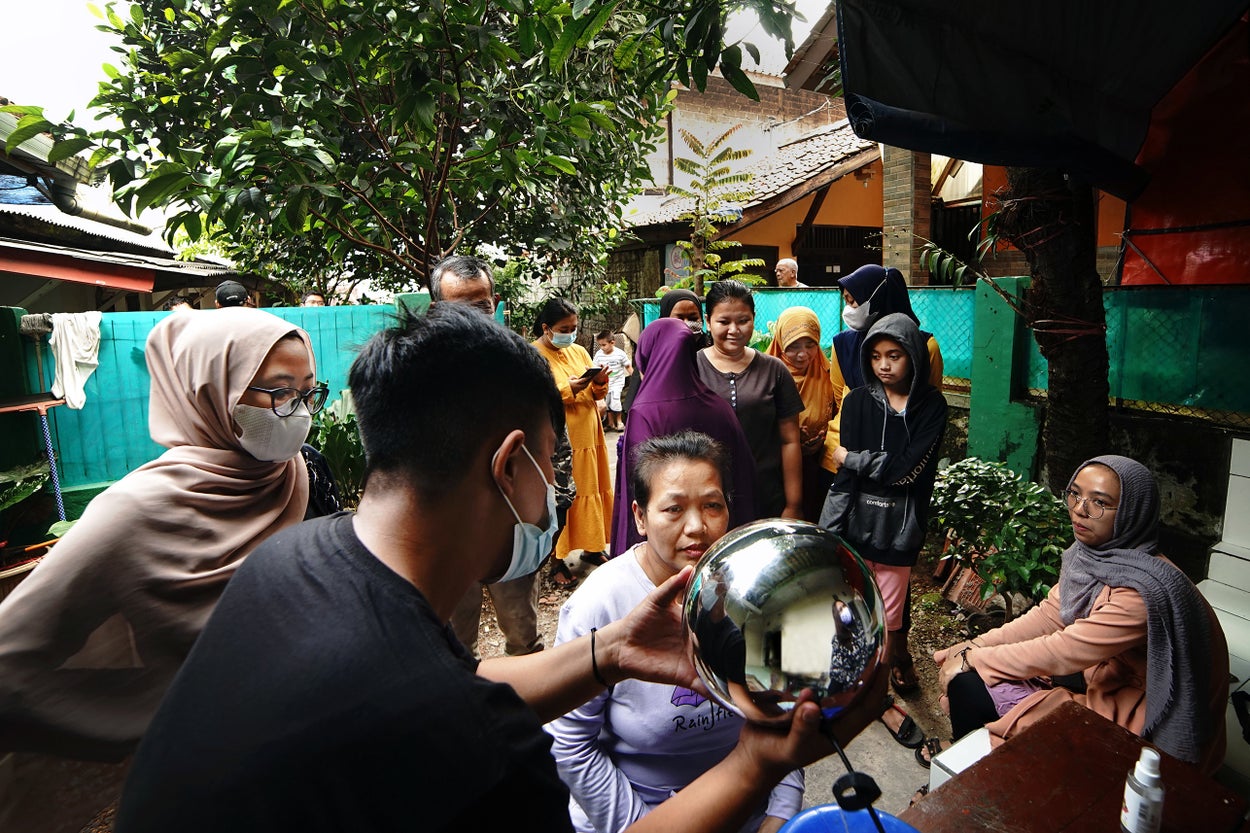
Sam Altman’s Worldcoin Promised Them Free Crypto For An Eyeball Scan. Now They Feel Robbed.
Blania described a futuristic planet awash in Orbs of different styles and sizes, the place just about every person would be assigned a exclusive and anonymized code connected to their iris that they could use to log in to a host of internet and blockchain-dependent purposes.
Blania did not rule out the chance that Worldcoin would charge a rate for giving this provider, but the startup primarily options to make income as a result of the appreciation of its forex. “You distribute a token to as quite a few men and women as you can,” Blania reported. Since of that, the “utility of the token increases dramatically” and the “price of the token raises.”
Vital to all of this technology is the Orb itself, and the deal that Orb operators signal underlines the company’s concentration on worry-tests it. “Your purpose is to enable us evaluate the Orbs and how persons interact with them,” the contract claims. “You should really imagine of oneself as a product tester.”
Blania explained to BuzzFeed Information that the company was largely employing its area exams to see how the Orbs executed in diverse environments — from Kenya’s warmth to Norway’s freezing cold. “In Kenya the place there was like, 40-diploma heat, and just the reflection on the Orb is a little something we have never witnessed right here in Germany in the office,” Blania said.
Adam Schwartz, a senior workers lawyer for the Digital Frontier Foundation, reported the ambiguity about Worldcoin’s ambitions is troublesome. “The query is, is this a digital forex company, or is this a details broker?” he said. “Either way, the exercise at hand, which is spending people today for their biometrics, is really problematic to privacy and to equity.”
“Worldcoin is not a data corporation and our business product does not require exploiting or providing personal person data. Worldcoin is only intrigued in a user’s uniqueness — i.e., that they have not signed up for Worldcoin right before — not their identification,” Worldcoin’s Golovina said in a statement.
The company’s endeavours to make its database could also run afoul of data privacy and processing laws in Kenya, exactly where the firm has substantial functions. Kenya not too long ago handed a knowledge defense law that forbids businesses from transferring biometric facts overseas with no acceptance from the freshly constituted Workplace of the Knowledge Security Commissioner. Worldcoin presently processes user details in the US, Uk, Germany, Japan, and India, in accordance to its facts consent kind.
Immaculate Kassait, Kenya’s info commissioner, explained to BuzzFeed Information that her place of work “was not aware” that Worldcoin was accumulating the biometric facts of Kenyans and transferring it overseas.
The organization has right until July 14 to sign-up alone with the commission and post a detailed Information Security Affect Evaluation below Kenya’s freshly applied knowledge privacy regulations, Kassait explained more than e-mail. Worldcoin’s Golovina explained to BuzzFeed Information that the business would quickly engage with Kenya’s Info Fee and had by now done a “rigorous” privacy impact evaluation.
Bryan Ford, who heads the Decentralized/Distributed Devices (DEDIS) lab at the Swiss Federal Institute of Engineering and wrote 1 of the groundbreaking papers on evidence of personhood in 2008, said resolving the authentication dilemma in a way that preserves user privateness would be a considerable advance. Ford, on the other hand, is not certain by Worldcoin’s answer. The company’s determination to build and retailer a large, centralized database of irises and iris-hashes, he mentioned, is a significant invasion of user privateness.
“We dispute the characterization that amassing pictures of Worldcoin end users is an invasion of privacy: If accumulating visuals of men and women with their consent was an invasion of privacy, CLEAR” — the biometrics identification business — “the UN and Aadhaar would all be examples of invasions of privateness as well,” Golovina explained in a assertion to BuzzFeed Information.
Privateness advocates and security experts in India have very long characterized Aadhaar, India’s enormous biometric identification method, as a privateness nightmare. Gurus also dispute whether or not Worldcoin has carried out ample to make sure that it has obtained educated consent from folks, specified that the company’s in depth conditions and situations, privacy plan, and info consent kinds are in English.
“Informed consent means that you are in a place to totally have an understanding of what is heading on,” mentioned Elias Okwara, Africa coverage supervisor for the advocacy team Accessibility Now, noting that a the greater part of Kenya’s inhabitants speaks Kiswahili. “So correct off the bat, it will become challenging to be ready to clarify to an individual what the knowledge processing means.”
Golovina, the spokesperson, mentioned that Worldcoin would quickly roll out its privateness variety in 6 languages and recommended that the Orb operators have been stay-translating and outlining the company’s voluminous procedures to men and women who do not discuss English. “In all these nearby countries, we have Orb operators, and their full reason and purpose is to demonstrate to persons what they consent to in their nearby languages,” Golovina explained.
Any significant biometric databases is also inclined to hacking, Ford stated, detailing that the databases could be compromised if someone hacks into the thousands of Orbs that the corporation strategies on distributing. “Basically no hardware is reliably unhackable,” Ford stated.
Blania conceded that “there has hardly ever been an uncracked hardware device” but claimed that Worldcoin was building fraud-detection mechanisms to recognize compromised Orbs.
